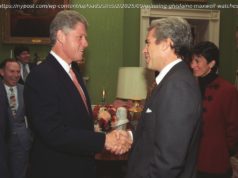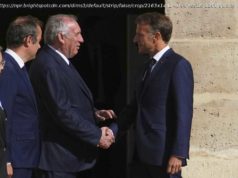Asia’s top diplomats press North Korea to turn a pledge to completely dismantle its nuclear arsenal into reality amid concerns that it’s proceeding with its nuclear and missile programs.
Asia’s top diplomats pressed North Korea Saturday to turn a pledge to completely dismantle its nuclear arsenal into reality amid concerns it’s proceeding with its programs.
China and Southeast Asian nations also faced calls in an annual meeting in Singapore to rapidly conclude an effective nonaggression pact that can help fend off possible clashes in the disputed South China Sea. Both sides have announced an agreement on an initial draft of a regional «code of conduct» that they regarded as a milestone after 16 years of sporadic talks.
Alarm over rising trade protectionism, which Asian governments warn could stymie economic growth, dominated the meetings too, with Japan calling for the swift conclusion of a 16-nation Asian free trade agreement that does not include the United States.
Philippine Foreign Secretary Alan Peter Cayetano said the rapprochement between North Korea and the United States, along with completion of a negotiating draft of the code of conduct for the South China Sea, are breakthroughs. But he added that «like any other breakthrough in diplomatic negotiations, they may lead to something great, they may lead to nothing.»
«Now the hard work is really on the details,» Cayetano told reporters before walking into daylong meetings between the Association of Southeast Asian Nations and their partners the United States, China, Japan and South Korea.
North Korea’s foreign minister, Ri Yong-Ho, is attending the ASEAN Regional Forum, Asia’s largest political and security conference.
ASEAN foreign ministers, along with counterparts from China, Japan and South Korea, urged the U. S. and North Korea «as well as concerned parties to continue working towards the realization of lasting peace and stability on a denuclearized Korean Peninsula,» according to a draft communique they were to issue after their meetings Saturday, which was seen by The Associated Press.
In the communique, they would «note» — often a diplomatic subtlety for a reminder — the «stated commitment» of the Democratic People’s Republic of Korea, the North’s formal name, «to complete denuclearization and its pledge to refrain from further nuclear and missile tests during this period.»
A summary of a new report by experts monitoring U. N. sanctions against North Korea, which was sent to the Security Council Friday night and obtained by the AP at the United Nations, said North Korea has not stopped its nuclear and missiles programs and continues to defy the sanctions resolutions.
The North was also violating sanctions by transferring coal at sea and flouting an arms embargo and financial sanctions, the report said.
After agreeing on the text of the code of conduct in the disputed waters, senior Chinese and ASEAN diplomats will meet in Cambodia this month or in September, to be followed by another meeting in the Philippines, to start actual negotiations, a senior Southeast Asian diplomat said on condition of anonymity because of a lack of authority to discuss the issue publicly.
Non-contentious provisions, including the preamble, would be tackled first before the touchy issues, including whether the pact should be legally binding and its geographic scope, to prevent the talks from stalling early, another diplomat said. Both sides have agreed to keep the negotiations confidential, he said, also speaking on condition of anonymity because he wasn’t authorized to talk to the media.
Amid the trade tensions between the United States and China and other nations, Asian ministers called for an early conclusion, possibly this year, of talks for the Regional Comprehensive Economic Partnership, a free trade accord that would include the ASEAN states, along with key trading partners China, Japan, Australia, New Zealand, India and South Korea.
«Given the current global situation where protectionism is on the rise, Japan would like to achieve the swift conclusion of the RCEP,» Japanese Foreign Minister Taro Kono said.
South Korean Foreign Minister Kang Kyung-wha warned that «rising anti-globalization and trade protectionism among major countries is fueling tension and threatening our aspiration for sustained economic growth.»
In a one-on-one meeting on the sidelines of the Singapore events, Malaysian Foreign Minister Saifuddin Abdullah said he told U. S. Secretary of State Mike Pompeo that Asian countries like Malaysia «are quite nervous on the possible negative repercussion of the ongoing trade war.»
Pompeo responded articulately, «but my objective was quite straightforward. I need to inform him that we are very concerned,» Saifuddin told a news conference.






